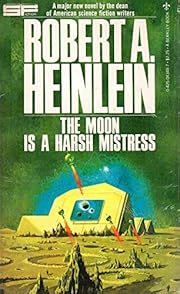Book meta-discussion: Unmasked: Inside Antifa’s Radical Plan to Destroy Democracy 1
This will be the last of my regular Monday book posts for a while. In preparation for moving, I’ve put a lot of my books in boxes, and it’s getting harder to find the books that I want to reread and discuss. Naturally, this isn’t stopping me from acquiring even more books. This post is about an upcoming book by Andy Ngo, called Unmasked: Inside Antifa’s Radical Plan to Destroy Democracy. Or rather, it’s about Antifa’s attempt to suppress the book. I have it on pre-order from Water Street Bookstore but haven’t read it yet.
There’s a lot of misinformation about Antifa. On the one hand, mainstream media articles keep claiming it’s an “anti-fascist” organization. It’s anti-fascist in the same sense that the Capitol riot was “patriotic”: not at all, but the people involved find it handy to appropriate a term which they don’t deserve. On the other hand, some people on the right have built it into a ten-foot-tall organization which is behind everything. It’s even supposed to have been the real people who invaded the Capitol. What it mostly does is disrupt speaking events it doesn’t like. It’s basically a gang of thugs who hate freedom and aren’t hugely important.
(more…)
 But the attempt to extract a “monomyth” from all the world’s heroic quest stories doesn’t impress me very much. It has an intensely Freudian focus and plays down aspects of myth which don’t fall into that scheme. I’m no folklorist, so don’t expect expert analysis here, but to me the basic formulation seems forced.
But the attempt to extract a “monomyth” from all the world’s heroic quest stories doesn’t impress me very much. It has an intensely Freudian focus and plays down aspects of myth which don’t fall into that scheme. I’m no folklorist, so don’t expect expert analysis here, but to me the basic formulation seems forced. Robert Heinlein’s
Robert Heinlein’s  It’s a curious thing that the people who say you should leave the country if you don’t like it are so often the ones who favor legal barriers to doing it. Having the option is a valuable freedom, though.
It’s a curious thing that the people who say you should leave the country if you don’t like it are so often the ones who favor legal barriers to doing it. Having the option is a valuable freedom, though.  The early 1930s were a bad time for people who loved freedom. The Communists had taken over in Russia, as had the Fascists in Italy, and the Nazis were fast gaining power in Germany. The world economy had just crashed. In 1932, Aldous Huxley published
The early 1930s were a bad time for people who loved freedom. The Communists had taken over in Russia, as had the Fascists in Italy, and the Nazis were fast gaining power in Germany. The world economy had just crashed. In 1932, Aldous Huxley published